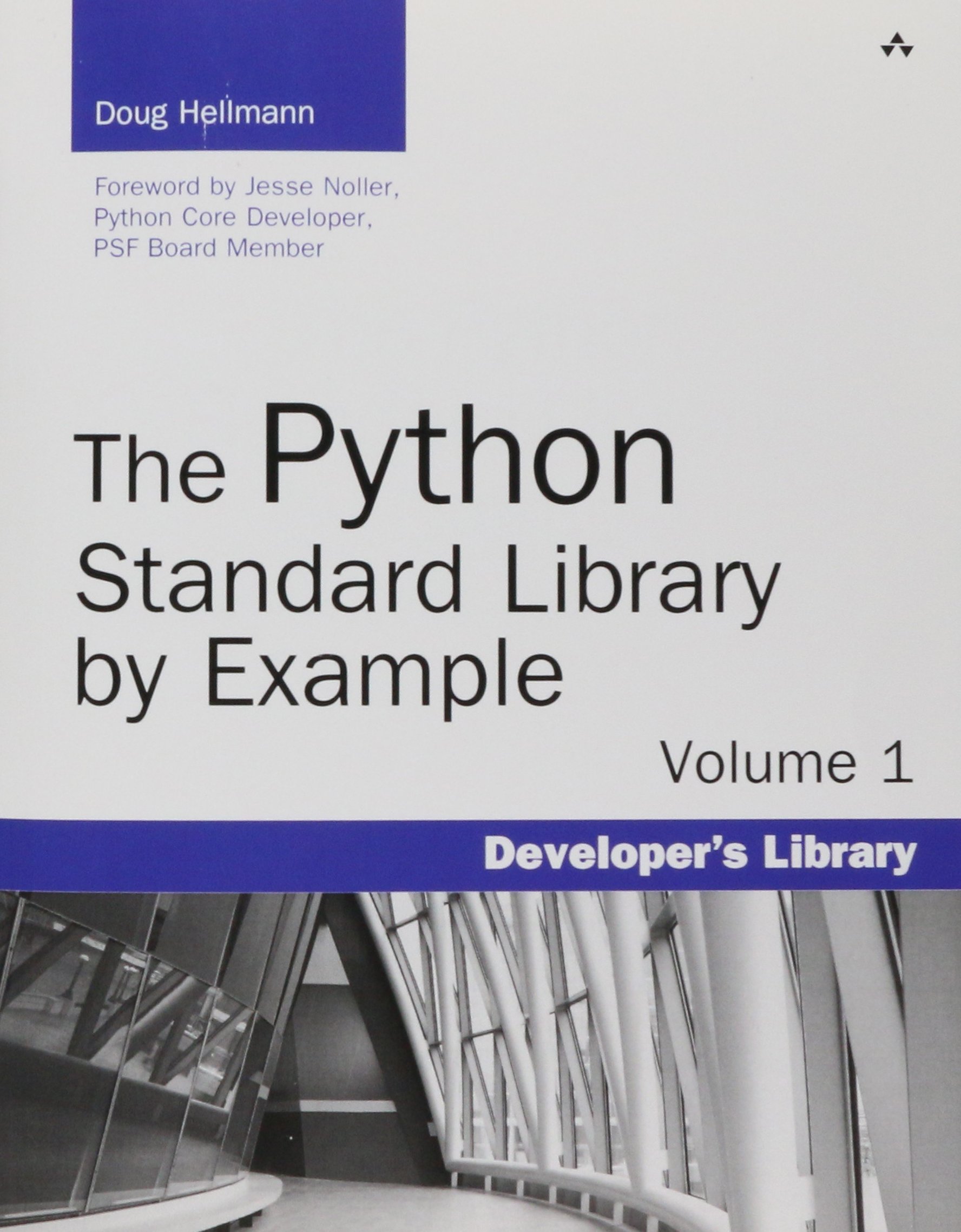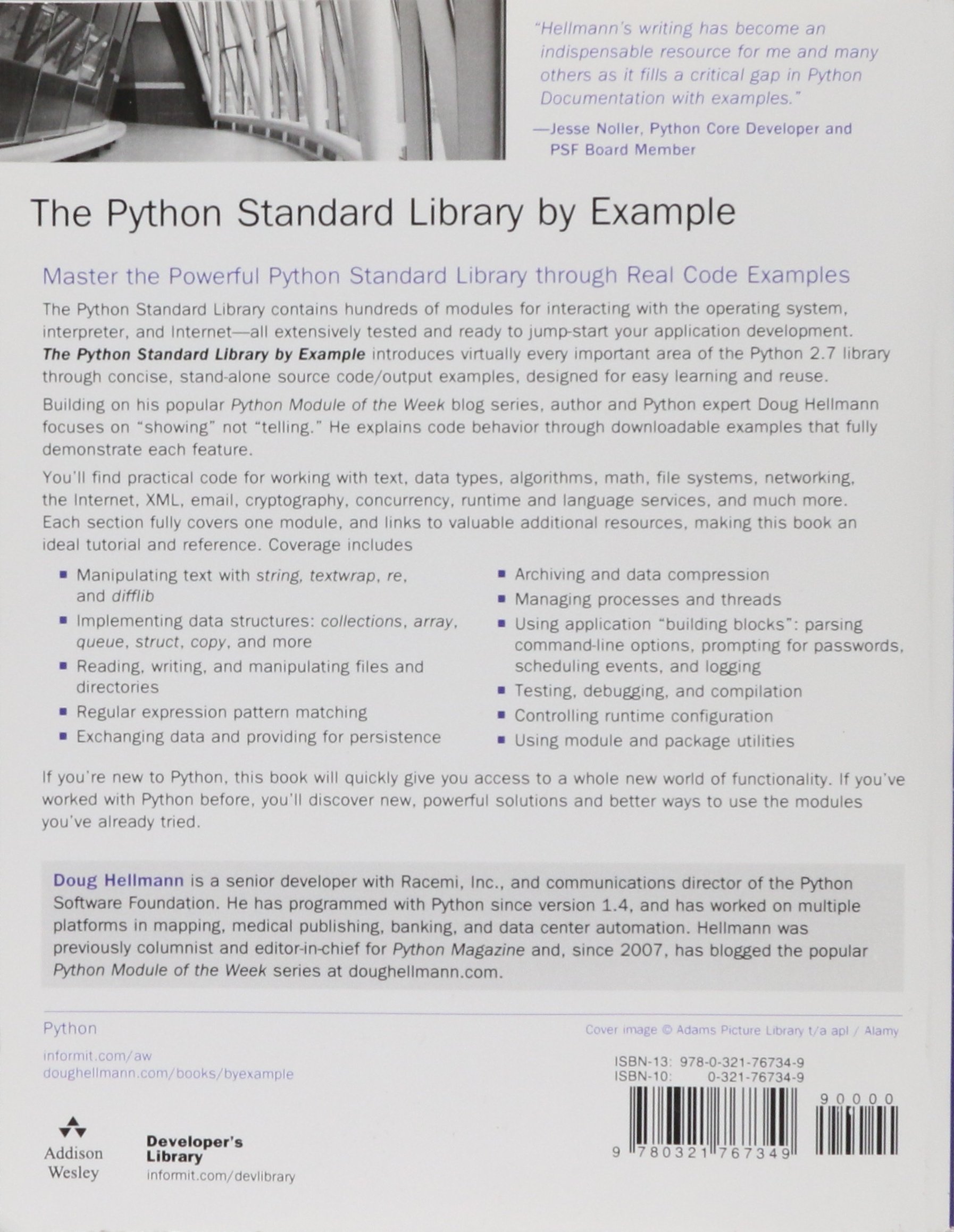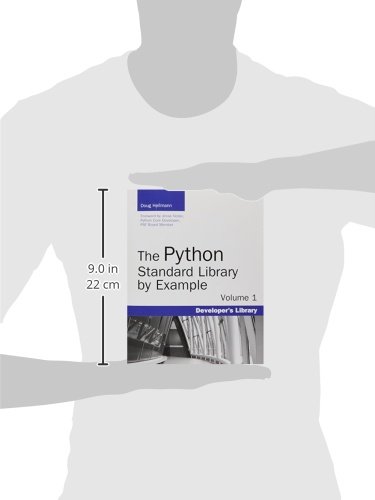



Full description not available
M**N
Many clear examples of how to use Python's standard library
I had pre-ordered this book, as the author's website and blogs have always been excellent in their ability to give concise examples for the usage of Python's extensive standard library. I have now had the book for a few days and I am very pleased with it.I sometimes wonder when I will buy my last physical book, as digital versions are becoming standard. This book, however, is a great example of some of the great computer books that lived most of their lives right next to my computer: a well-organized reference manual with a great index and table of contents (you can view these on the Amazon page for this title).I teach Python in my high school Computer Science classes, and have always loved the fact that I can write Python code quickly and successfully for so many tasks that come up when teaching. Learning Python is one thing--being able to utilize the standard library in "Pythonic" ways is another skill entirely. The core language is perfect for introducing students to real programming--the instructor can choose to introduce many of the functional programming aspects of Python after students have become comfortable with the traditional imperative approach (gradually leading to an understanding of abstraction in a natural way). But it won't be long and students will start discovering just how easy it is to utilize the standard library for many of the tasks that are coded from scratch in books that merely use Python to teach the fundamentals of Computer Science and Programming. This book is an excellent reference to have for those students that want to use Python for tasks outside of the usual core language programming challenges that they are learning in class. I have students who have used Python for tasks that I had simply never though of--like my student that wrote a forum bot to alert him via email whenever new posts on our phpBB forum appeared. Other students have created chat rooms and file servers with amazing efficiency using Python.I highly recommend this book for anyone that 1) wants to learn how to utilize the "batteries included" in Python, 2) need a handy guide for working outside the core language. As an educator, I love how easy it is to simply pick up this book, open to a random spot, and quickly get ideas for examples to use in class that will help students see the amazing potential Python has. Also, although the standard library has excellent documentation, the vast majority of students simply want to see examples and then try altering them for their own purposes. This book provides those examples that are simply not collected anywhere else in such an organized and accessible format.
D**E
Learn by doing and example
Mr. Hellmann presents the Python Standard Library in a way it teaches you by doing, which to most, is the best way to learn programming.Lets face it, the standards docs can be difficult to comprehend or follow. This book explains the standard library in a way that is simpler than the standard docs.The chapters are concise and full of examples. There is non piece of code that is written where he doesn't explain how it works.Over all it is a great book to have if you're an intermediate(and up) python developer.
R**K
Good book by Hellmann
It's hard not to like what Doug Hellmann writes. Some of it is useful for Python 3, but I rated it with a 4 because I was looking for something for Python 3, this book was recommended and so I got it not realizing it was primarily 2.7. I do recommend Doug Hellmann's books but find one that covers versions 3.x (unless you are still working in 2.7 - by all means this book would be a good resource).
R**I
STL for Python 2.7
This book is for v2.7 and not Python 3, but it says so on the book. The seller left a note in the book, which I thought was a nice touch. The condition of the book was so good that I couldn't tell that it was used. Example code is printed in a font that is so light that it almost looks faded. But that's a ding on the seller. There's nothing they could do about the publisher's choice of font.It is a good value for money, and I'm very satisfied with my purchase.
S**O
Not a Python3 book
I am developing new programs in Python3 and wanted up to date examples to speed things up.I made the wrong assumption that this book was up to date. If you want Python3 the book title must have Python3 in it apparently.While I expect that many parts are useful, the Internet section about urllib is all Python 2 and since I went there first, nothing that I have tried from this book actually works.The copyright is 2011 on this book, long after Python 3 came out so there has been time to update things or at least at an asterisk here and there.
F**D
Useful book on Python Modules
The book provided examples for some of the numerous Python modules. It provided information and examples for modules not included in the other Python reference books in my library. I found the book useful and it met my expectations. I would recommend the book to other programmers. May not be suitable for a beginner, unless they have experience with other programming languages, because the author does not attempt to present the material in a manner suitable for beginners.
M**O
Book is ok, but you're probably better off just googling the info
The reason for the low rating is not so much the book (it's reasonably well written, it covers A LOT of ground, it is accurate, as far as I can tell) but more the concept: despite is rather hefty size (1,200+ pages) this covers an enormous amount of ground, and it can only go so far in depth for each topic.So, all you can hope for is to get a general idea of what a given library can do, see some example code, but then, if you want to use any of those, you'll find yourself googling for more in-depth information (most likely, from the docs.python.org website): at this point, you might as well have gone there in the first place.As an experienced Python developer, you'll want to bypass the info in this book, and just head off to the Python docs directly - and figure out usage yourself; as a beginner, you'll find much value from this book, both to 'discover' what is possible with Python's standard library (it turns out, a lot!) as well as some basic examples as to how to use it.
R**.
Greatest Python book out there
After buying about a dozen books on Python, this is by far the best book I've layed eyes on. It's a toolbox full of useful code that you can start to use right now. Can't ask for more than that.
Trustpilot
3 weeks ago
2 months ago
3 weeks ago
2 weeks ago